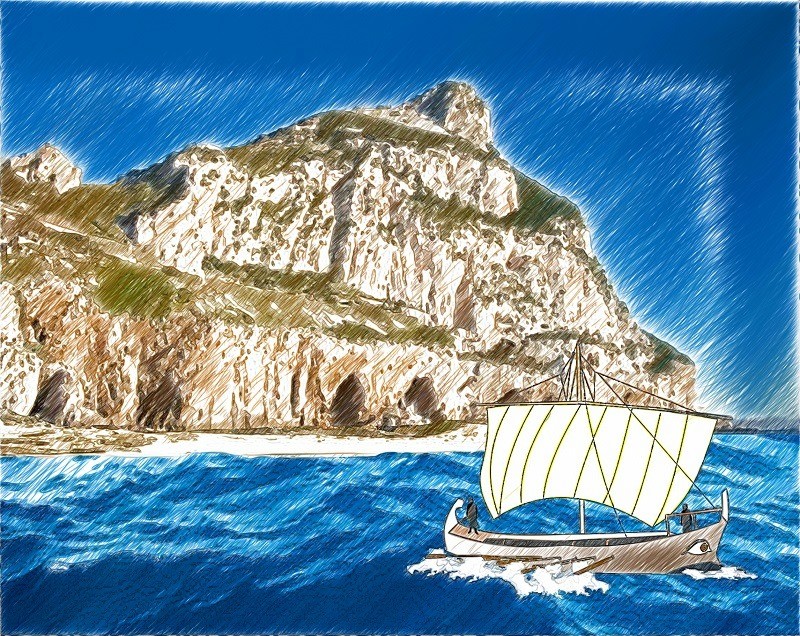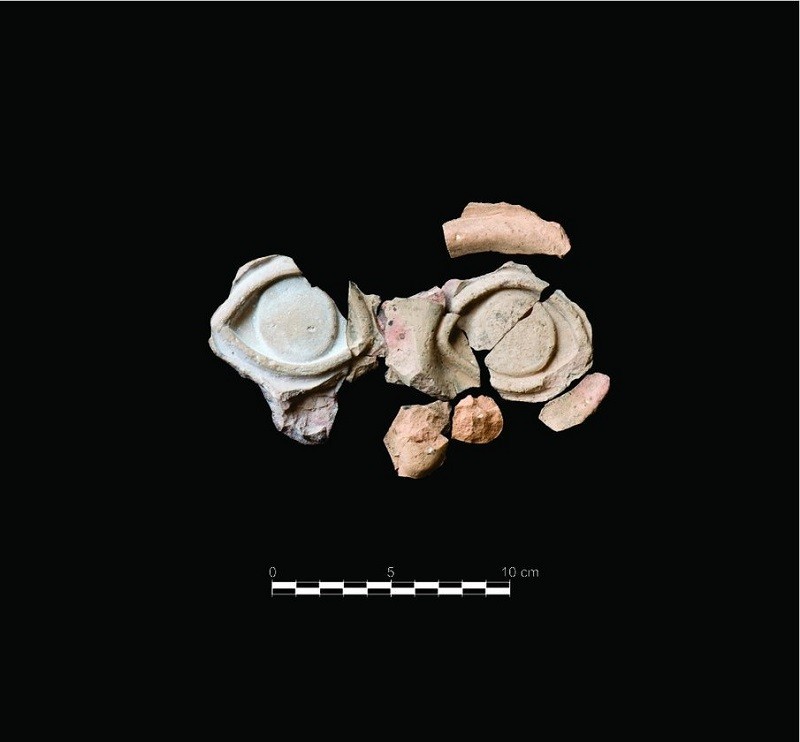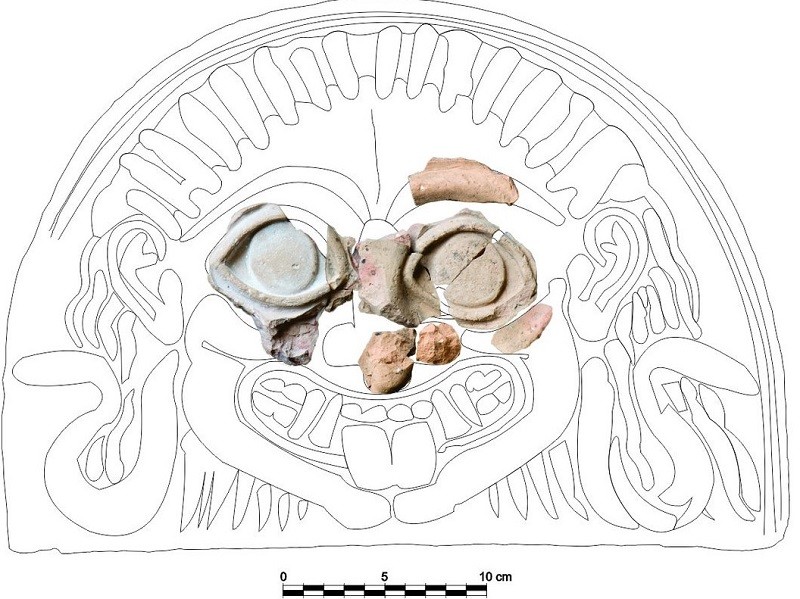the myth of the gorgoneion and gibraltar

A depiction of ancient mariners arriving at Gorham's Cave.
The Myth of the Gorgoneion and Gibraltar
Finding links between the world of myths and legends and reality can be a challenging task and even prove unsuccessful. However, on certain occasions, archaeological finds allow us to have a closer look into certain aspects relating to the original locations ascribed to these myths by ancient peoples.
This may be the case of the myth of one of the Gorgons. Today we present a find that suggests a close relationship between Medusa and the ancient shrine at Gorham’s Cave in Gibraltar, where various ceramic fragments belonging to a representation of Medusa’s head were found.
Once again, we are reminded of the special location of this shrine at the base of one of the Pillars of Herakles at the very border between the known world and a strange world, where myths about monsters and legendary kingdoms were based.
The myth of Perseus and the Gorgon Medusa is described by classical writers with clear references to locations in the Strait of Gibraltar. Now, with this discovery, we have found a relationship between the myth and the actual place this was purported to have taken place. The find of the Gorham’s Cave Gorgoneion is the only one to have been found in a cave, and one of the very rare examples outside the Hellenised areas of the central and eastern Mediterranean where these are typically located in temples with the purpose of affording protection or giving warning.
Its geographical origin is likely in the very Hellenised areas of Magna Graecia in Sicily or Ancient Corinth. Its stylistic characteristics fit it within the 6th century BCE, and its Greek style strengthens the international character of this shrine.

Ceramic fragments of the face of the Gorgon Medusa from Gorham's Cave.

Reconstruction of the Gorgoneion found at Gorham's Cave.
Published: April 10, 2020
Other similar VM - Archaeology
18-20 Bomb House Lane
PO Box 939,
Gibraltar
